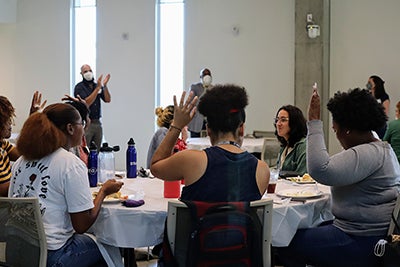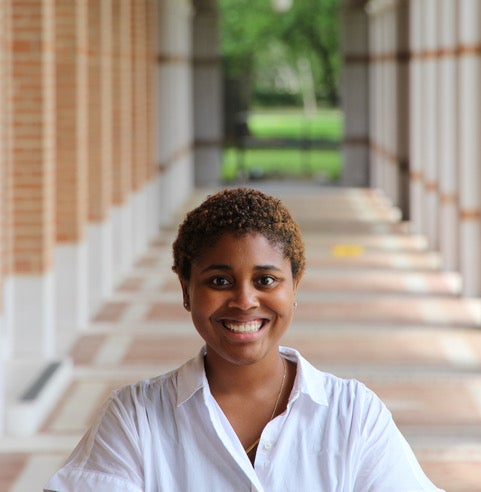Statistical Training and Research Techniques at Rice University (STaRT@Rice) is an innovative program that provides social science research training and professionalization opportunities. Participants increase expertise via exposure in applied workshops and learn how to ask better questions about the research process. The skills that STaRT@Rice aims to develop and strengthen can have a substantial impact on the students’ success in both academic and non-academic markets. Workshop topics cover a broad range of content, moving from introductory to intermediate to advanced. Thus, participants can choose workshops matching their skill sets and background. This year, STaRT@Rice will take place on October 7-11, 2022 at Rice University’s Kraft Hall.
Past STaRT@Rice participant, Asha Jones, is a second-year doctoral student in political science. Her studies are focused on American politics and how previous trauma or previous instances of violence have an impact on current day political behavior and attitudes. She is also interested in how conspiracy theories are being interwoven into the current American political system and how that will change political behavior.
Jones first became interested in STaRT@Rice when Matthew Hayes, who is now at Washington University in St. Louis, told her about an idea of bringing all the departments of the social sciences together for a multi-day training event that would provide workshops on quantitative research methods, qualitative research methods and professionalization. For Jones, the opportunity for quantitative training particularly piqued her interest.
“I don't come from a quantitative background,” said Jones, “so I knew that I would need more attention and training to acquire different skills, techniques and methodologies to address the questions that I am interested in answering.”
In addition to receiving more training, Jones was also interested in creating and building a community between different groups within the social sciences.

Some of the notable sessions she attended during STaRT@Rice included Agent-based Modeling with Elizabeth Roberto, sociology; Design and Deploy a Data Visualization App with John Mulligan and Derek Keller, Center for Research Computing; Linear Models I with Christina Diaz, sociology; and Methods for Visual Analysis in the Social Sciences with Michelle Torres, political science.
“Hearing how researchers from different departments apply the various methods in their specific areas was enriching and helped us to think about how we could do things differently in our own fields,” said Jones, “because at the end of the day, many social scientists are asking similar questions – We are all just approaching them from different angles.”
Jones believes that STaRT@Rice bridged several gaps by providing her with the initial knowledge and tools to approach certain applications and methods. The program, she asserted, helped change the participants’ perspectives on their research, and at the very least, it introduced them to something new.
For someone who is deciding on whether to participate in STaRT@Rice, Jones said, “There is room for you. Don't feel like you must be an expert at anything because I was not an expert – I just really wanted to learn. If you are inspired to learn some interesting methods, meet different people in the social sciences and gain exposure to potential mentors within all the departments, then you should definitely do it.”
STaRT@Rice is open to undergraduate and graduate students at all local universities. Two three-hour blocks of workshops will be offered daily, competitive fellowships are available, and meals and parking are included. To register, visit riceconnect.rice.edu/events/2022/ss-events/start-rice-2022. For more information, visit start.rice.edu/faq

